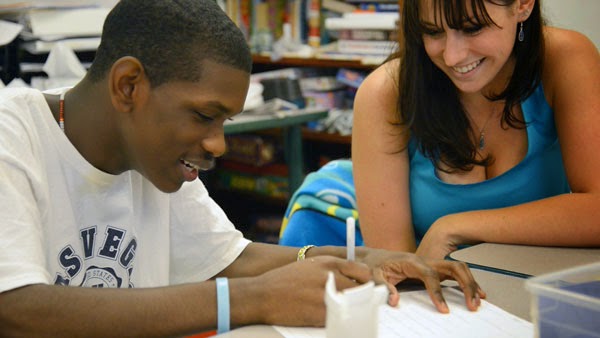Finding special education schools
in New York City is not easy for any parents to a child suffering from Autistic
Spectrum Disorder (ASD). We don’t blame you. No one should choose a school for
their child without thorough research, autistic or not. We will try to help you
a little to decide.
1. Children
with special needs are usually not very comfortable in social interaction. Inability
to relate to and communicate thoughts enrages them. One thing that can really
help them with this is music therapy.
Music therapy
sessions are particular structured according to each child’s needs. There are a
number of activities involved, like listening to music, singing along and even
learning instrument. Learning instruments gives them an outlet for their
thoughts and emotions.
2. Children
suffering from ASD often are averted to crowd, chaos and noise. Sometimes it
may become overwhelming for them. At such times what they need is a quiet
refuge. Somewhere they can calm themselves, without the constant struggle of trying
to cope with their surroundings.
These are a few
things that children suffering from ASD may need at a special education school
in NYC. Rebecca School gives your child all this and much more. We have music
therapy sessions, structured by our expert team. We have Quiet Areas near each
classroom for when a student might feel the need for a refuge. Our academics
are specially designed too. Our foremost goal is to move the child up the
developmental ladder, rather than testing his/her memorization skills.
We understand
the parent’s worry for the child. That’s why we have a number of facilities for
the parents too; to make life easier for the entire family. We provide you with
a social worker, who becomes a bridge between you and the school. You can
contact this social worker for any emergencies too. There are parent support
groups so you can share your experiences and listen to other parents’. We also
have parent workshops to educate the parents about any relevant topics regarding
their child. Choosing the perfect autism school for your child mustn’t be done
with half knowledge. That’s why we give you a tour of our special ed school in NYC you can see our facility and the ongoing classes. Contact us for a free
tour.
Again, these are
only a few highlights of Rebecca School. For more details go through our
website and don’t hesitate in contacting us!








